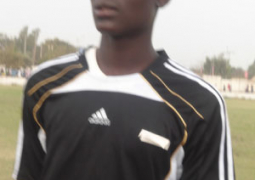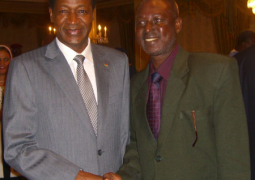The initiative dubbed ACCESS SMC being pioneered in the country by Gambia CRS (Catholic Relief Service) in collaboration with the Ministry of Health, UNICEF, WHO, and Medical Research Council (MRC) is seen as a demonstration of The Gambia’s renewed efforts to make progress towards preventing and controlling malaria, so it ceases to be a public health problem in the country.
It would also augment the gains The Gambia has registered in malaria over the years.In the launching statement of the programme manager of the National Malaria Control Programme (NMCP), he said: “Despite the worldwide burden of malaria, significant progress has been made in The Gambia National Malaria Control Programme with an overall reduction of child mortality rates by 17% in 2010.
“Malaria incidence has been reduced by 85.5%; admissions due to malaria have dropped by 74% and malaria attributable deaths dropped by 90%.”
This clearly places The Gambia on another pedestal in terms of achieving results and higher heights in combating malaria in our society and system.
The newly-introduced SMC pilot project is expected to run three months to ascertain its efficacy, but going by its results in the other countries and the recommendations of international health-related institutions and the World Health Organisation, it can be said that this treatment is worth giving a try.
A comprehensive explanation by the WHO of SMC is as follows:
Seasonal malaria chemoprevention (SMC)
Seasonal malaria chemoprevention is defined as the intermittent administration of full treatment courses of an antimalarial medicine to children during the malaria season in areas of highly seasonal transmission.
The objective is to prevent malarial illness by maintaining therapeutic antimalarial drug concentrations in the blood throughout the period of greatest malarial risk. WHO recommends SMC with sulfadoxine-pyrimethamine and amodiaquine in areas with highly seasonal malaria transmission in the Sahel sub-region of sub-Saharan Africa, where P. falciparum is sensitive to both antimalarial medicines.
Across the Sahel sub-region, most childhood malarial disease and deaths occur during the rainy season, which is generally short (3-4 months). Giving effective malaria treatment at monthly intervals during this period has been shown to be 75% protective against uncomplicated and severe malaria in children under five years of age.
SMC is also cost-effective and safe and can be administered by community-health workers. In areas where SMC is implemented, intermittent preventive treatment in infants (IPTi) should not be deployed.
An estimated 25 million children aged 3-59 months could benefit from seasonal malaria chemoprevention every year. WHO issued its SMC recommendation in March 2012. Prior to that, SMC was referred to in the research literature as Intermittent Preventive Treatment in children, or IPTc. In August 2013, WHO released an implementation guide to help countries adopt and implement this new intervention.
“The malaria parasite has been killing children and sapping the strength of whole populations for tens of thousands of years. It is impossible to calculate the harm malaria has done to the world.”
Bill Gates
Read Other Articles In Article (Archive)
APRC supporters in Banjul seek re-election of Samba Faal
Feb 6, 2013, 10:16 AM



